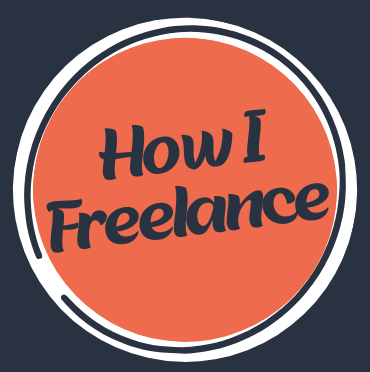Freelancing is less lonely when you’re part of a community.
That’s one of the reasons freelance writer Jessica Walrack started All Things Freelance Writing, a resource for other writers who are building and growing their own businesses.
Jessica also knew firsthand how hard it can be to take your freelance business in a different direction when things aren’t working. After seven years of freelancing, she made some major adjustments to the type of work she offered – and the shift eliminated some of the burnout and bottlenecks she was experiencing.
Read on to discover how Jessica uses her struggles to help other freelancers feel less alone and provide opportunities for them to connect with work they truly enjoy.
When and why did you start freelancing?
I started freelancing in 2013. I was freelance writing on the side as a way to earn extra money while ramping up a different online business. The writing ended up taking off, so I ditched the other business and went all in!
What niche(s) do you work in?
Finance blogs and articles. After seven or so years as a generalist writer, I was tired of dealing with issues within my business and got serious about trying to fix them. Some of those issues were feast and famine, limited inbound, price objections and workflow bottlenecks.
I began looking for the type of work I already did that was the most profitable, enjoyable and in demand. It just so happened to be finance blogs. I experimented with tailoring my LinkedIn profile to finance blogs and had an overwhelming response of inbound service requests. I’ve been on that track ever since!
Who are the clients you work with?
I write long-form blog posts and news stories for national news outlets such as CBS News and US News & World, media publishing companies like Investopedia and Forbes Advisor, and B2B SaaS companies in the finance industry.
Where do you freelance from?
I’m currently settled in the Boise, Idaho, area, although I spent the first seven years of my business traveling abroad (Costa Rica, all over Europe, Cyprus and Mexico).
Tell us about the tools you rely on to run your business.
Google Workspace for Docs, Sheets, Forms and Gmail. Plus Grammarly, which is always watching over my shoulder. While I don’t trust it blindly, it’s super helpful for catching little typos.
Name one thing that’s surprised you about freelancing.
I was truly blown away by the amazing communities of freelance writers on Facebook, LinkedIn and Instagram. Most of the freelancers I’ve met are extremely open, friendly, collaborative and supportive. It’s a beautiful thing because building a business as a solopreneur can be very lonely and challenging.
Made any big mistakes during your freelance journey?
One big mistake I’ve made is not listening to my gut. Sometimes, you get presented with an opportunity and have a feeling it’s going to be problematic but accept it anyway. Those gut feelings always end up being right!
I’ve gotten better at spotting and heeding red flags, but I still end up on problematic projects every once in a while. They can really hold you back by eating up more time and energy than they’re worth.
Most of the freelancers I’ve met are extremely open, friendly, collaborative and supportive. It’s a beautiful thing because building a business as a solopreneur can be very lonely and challenging.
What are you proudest of with your business?
I’d say I’m proudest that I’ve aligned my business to the parameters that I set out to achieve. I won’t get into all the details, but a few years ago I was in a bad place with my business and suffering on many levels.
I made a very specific plan to improve and wrote it down in detail. I had my doubts but was committed. It took about a year and a half, but my business eventually aligned with the plan.
The whole experience taught me that, without a doubt, clear intentions, persistence and faith can open new doors.
There’s lots of advice out there for freelancers. What advice do you agree with?
One common piece of advice I agree with is to adopt a business owner mindset. It’s easy to fall into the employee role, even though you’re running a freelance business. But that’s a quick way to build a business that feels more like a prison than a key to freedom.
If you don’t have clear and firm boundaries, some clients will push as far as they can for as little pay as possible. And it’s your time, life and health on the line! We can all hustle for a while – but burnout will eventually come if you don’t take the reins and operate in a sustainable way.
What common advice do you disagree with?
Niching down right away as the rule. By starting out as a generalist, you can get your feet wet, experiment, and then make the niching decision based on experience and research.
If you niche down right out of the gate:
🟠 You may find you don’t like writing about what you thought you’d like to write about.
🟠 What you find most interesting may not be in demand in the market.
🟠 Companies in certain industries may not have the budgets necessary to pay your rates.
🟠 You can limit your opportunities.
Sometimes it can make sense to niche down right away, but testing the waters is often a safer bet.
What areas of opportunities do you see for current or future freelancers?
I think companies and publications are going to need human-centered content and copy that features unique insights from subject matter experts more than ever before.
You have some great resources for freelance writers – tell us about them!
If writers want help finding work and building their businesses, they can subscribe to the free All Things Freelance Writing Jobs email. It goes out every Friday at 8 a.m. Eastern with at least 20 new freelance writing opportunities and some other helpful resources.
Want to connect with Jessica? Find her online at jessicawalrack.com or connect on LinkedIn, X or Instagram. You can also join the All Things Freelance Writing community on the web, LinkedIn or Instagram.

